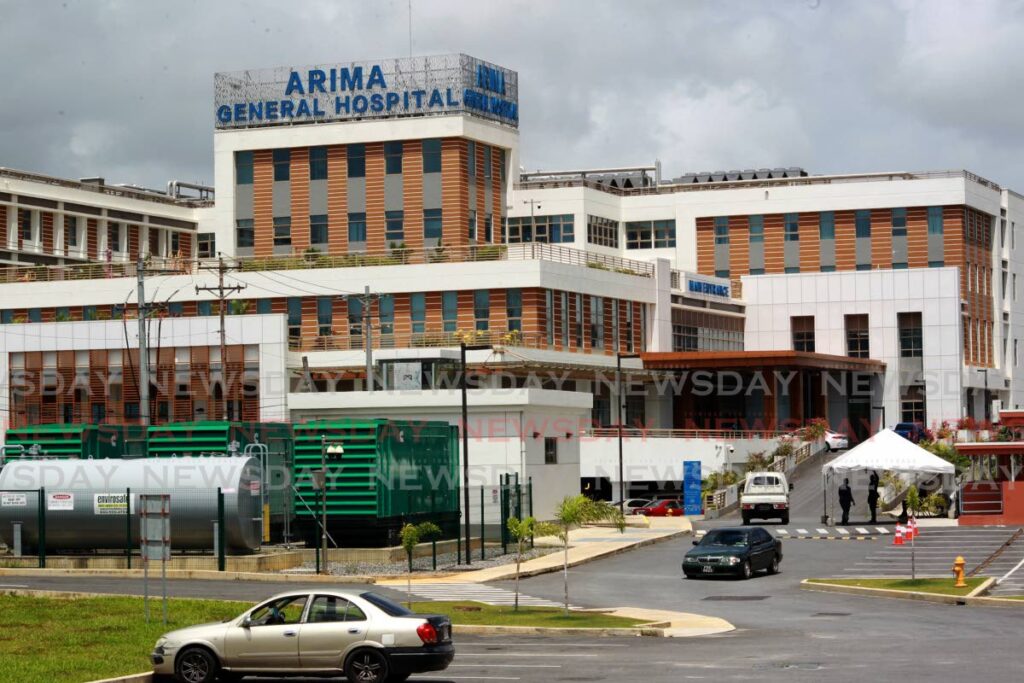Covid19 health facilities in phased return to public use

The decommissioning of the parallel healthcare system will begin with the Point Fortin Hospital which should be fully ready for handing over by March 12, Health Minister Terrence Deyalsingh said Saturday.
Deyalsingh said the decommissioning exercises would be carried out once the covid19 numbers remained favourable. He was speaking at the at the Health Ministry’s virtual covid19 media briefing.
“The Point Fortin Hospital is on target to be fully decommissioned as a covid19 by next Saturday, March 12, and then from the following week it will be returned to the people of the southwestern peninsula for their use as a general primary and secondary care facility. The hospital has been deep-cleaned, and what will be happening this week is 'airing out', restocking, etc,” he said.
The Arima General Hospital will be next.
“Once the numbers support it we could start to look at the Arima General Hospital to be decommissioned, and also the first step-down facility to be decommissioned will be the Tacarigua Racquet Centre, which could be returned to the Sport Ministry and Sport TT for sporting activity. I can’t give firm dates as yet, but that is the general plan moving forward.”
Deyalsingh said certain facilities would be retained as part of the parallel healthcare system.
“We will retain the Couva facility in the medium-term as a covid19 facility, as well as the St James Facility for the northwest peninsula. Part of the plan is to decommission the field hospital at the Jean Pierre Complex and possibly move it to another regional health authority to give them more capacity.”
He said a careful, risk-based approach was being taken to the decommissioning of the system.
“We analyse the level of risk we are taking, factor in what level of surge capacity we need, whether it’s at the acute, ward, or step-down levels of care, and we are doing it gradually so that in case we have a spike, we have capacity to take care of it.”
Deyalsingh said while some people might question the lifting of restrictions considering an anticipated spike from Carnival activities, currently hospital occupancy rates were lower than they were in April, 2021 and so the country was in a good place to take on additional risk.
He noted questions about the relevance of safe zones considering the return of public servants to work Monday, transportation to 100 per cent, and team sports being able to resume.
“We are making assumptions as to what levels of risk we can take on. We want to keep people who are socialising in enclosed spaces, and safe zones are almost always enclosed space, safe, so we are moving the capacity there from 50 to 75 per cent.”
Deyalsingh also announced the ministry will be carrying out a national sero-prevalence study to determine the levels of antibodies in the population. He said he had raised the issue a month ago with public health advisers – Drs Roshan Parasram, Avery Hinds, and Maryam Abdool-Richards.
“As a policy-maker, I am keen to look at how we move from a pandemic to endemicity. What the study will do is help us determine the levels of antibodies in the population by taking blood samples and examining the serum. This will help us fill in our knowledge gaps in an epidemic of this nature, determine how close our estimates are of where we feel our natural immunity is in the population. It will also help us predict in the future coming months things like what hospital capacity we need as we move to endemicity, what are the possible chances of future surges as natural and induced immunity wane.”
He said the study is led by his ministry with support and sign-off by UWI, including immunologists Dr Carla-Maria Alexander and Prof Christine Carrington as technical leads, and the Pan-American Health Organisation. He said no firm dates have been set for the start of the project.
He said the details would be worked out by the CMO – Dr Parasram – and Dr Alexander, and PAHO would provide technical expertise.
“They will work out the operational plan as to how many samples we need to do, the methodology, etc. The details are being worked out by the technical people and I prefer that they give those answers, possibly next week. We have to work on budget, protocols, get ethical approval, but I am alerting the population and Cabinet about the study.”
Epidemiologist Dr Hinds said endemicity refers to the level of control over a public health threat as it evolves.
“One of the things you monitor is the level of severe illness generated by the virus. Covid19 has both more and less severe virulent strains. You monitor the number of cases, whether they are coming down, plateau, fluctuate. This is a new virus so we don’t have concrete benchmarks for endemicity, but we look at things like the level of stress placed on the health care system, what numbers are cases are generated, if there’s seasonality to the patterns of the cases. There’s a lot we look at in the background and we continue to monitor that information on an ongoing basis.”
Hinds said it was possible that another variant could arise, which was why monitoring and surveillance systems, as well as hospital capacity, would be kept in place.

Comments
"Covid19 health facilities in phased return to public use"